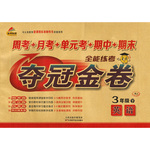9.While reading a book in English,every few lines of text,you run across a word or two that you don't know.You look up every new word in the dictionary.Bad move.All that does slow you down.Even electric or CD-ROM dictionaries can get in the way of your reading progress.A dictionary is like a road map.It can help you if you get lost and point you in the right direction.But if you stop to look at the"map"each time you take a step,you'll get nowhere fast.
On your English learning"journey",a dictionary can be a helpful"travel companion"--if it is not overused.To help you start thinking in English,use an English-to-English dictionary.Otherwise,you will always depend on your native language and end up translating in your head.
A good dictionary can help you do more than just find the meaning of a word.It can help you verify (test and check) spelling,check word forms and grammar usage,find example sentence and learn pronunciation.Some dictionaries even provide exercises to teach you how to use their resources.
Take time to get to know your dictionary.Learn the pronunciation symbols (符号).Understand what the abbreviations (缩写字) mean.Try to master the important grammar rules.Look for charts,diagrams and lists that might be useful in the future.You will discover how helpful it can be to make friends with your dictionary.And as they say,"A friend in need is a friend indeed."
29.Why do we need a good English-to-English dictionary?C
A.Because it is a good friend.
B.Because it can help us to find the right direction if we get lost.
C.Without it we'll always depend on our native language and end up translating in our head.
D.Because it can help us to start thinking in English and in Chinese.
30.The underlined word"that"in the last paragraph refers toD.
A.pronunciation symbols and grammar rules
B.abbreviations and usage for grammar rules
C.the meaning of a word,spelling and grammar usage
D.charts,diagrams and lists
31.According to the passage,which statement can lead you to believe?C
A.The more you use a dictionary,the better you can understand the article.
B.The more you use a dictionary,the faster you may read.
C.The more you use the resources in a dictionary,the more you can benefit (受益) from it.
D.The better a dictionaryis,the more expensive it is.
分析 本文向读者介绍了如何选择字典和使用字典.
解答 29.C 细节理解题.根据句子To help you start thinking in English,use an English-to-English dictionary使用英-英字典,是为了帮助你开始用英语思考,.Otherwise,you will always depend on your native language.否则,你将永远依赖于你的母语,所以答案选C.
30.D 句意理解题.Try to master the important grammar rules.Look for charts,diagrams and lists that might be useful in the future试着掌握重要的语法规则,查找将来可能有用的图表、图表和列表.分析此句可知这是一个定语从句,先行词是rules、charts、diagrams and lists,that是关系代词指代先行词在定语从句中做主语,所以答案选D.
31.C 推理判断题.根据最后一段最后句子You will discover how helpful it can be to make friends with your dictionary.And as they say,"A friend in need is a friend indeed.你会发现与你的字典交朋友是多么有帮助,正如他们所说,"患难朋友才是真正的朋友".可以推断出你越是使用字典你受益越多,就如同患难的朋友,所以答案选C.
点评 本文是一篇文化类的文章.考查阅读基础上的逻辑推理能力,要求考生根据文章所述事件的逻辑关系,对未说明的趋势或结局作出合理的推断;或根据作者所阐述的观点理论,对文章未涉及的现象、事例给以解释.考生首先要仔细阅读短文,完整了解信息,准确把握作者观点.



 夺冠金卷全能练考系列答案
夺冠金卷全能练考系列答案